- Home
- Robin Jones Gunn
Kissing Father Christmas Page 5
Kissing Father Christmas Read online
Page 5
Just then, Peter gently placed his hand on the small of my back in order to steer me through the Georgian Restaurant like a gentleman. I felt like Cinderella while she still had both shoes on.
“So you want to see that old clock you keep talking about?” Peter teased.
“Yes. I just don’t want it to strike midnight.”
“What did you say?”
“Nothing.”
Chapter Ten
Peter ushered me through the maze of shoppers. The crowd down on the first floor had changed to a more anxious-looking bunch. It seemed as if many of them had popped in on their way home from work. The collective hum in each department was rising.
“Did you work today?” I asked, not sure if Peter could hear me in the swirl of voices as we walked side by side, smooshed together in the crowded rooms.
“Yes. Today was my last day before the week off. It was a full day.”
“I appreciate you taking the time to do this.”
“Of course. It’s my pleasure. I was looking forward to it.”
“So was I.”
“How was your tea?” he asked.
“So good! I’ve never had tea like that before. It was so filling.”
Peter glanced at me. “You’re not hungry, then?”
“No. Not at all.”
“I’d thought you might want to have a bite after I take you to see your big crush.”
“My big crush, huh?” I smiled at him. It was getting too noisy to talk anymore.
We exited into the cold air. I had been carrying my coat and quickly put it on. I looked up and saw that the lights were lit around the top of Harrods. “Oh, look. It’s so pretty.”
Peter reached for my hand and pulled me along before I could get sidetracked and caught up in the crush of people coming and going and waiting for taxis.
“This way.” Peter kept hold of my hand for several blocks. I didn’t mind. His hand was warm and felt rough compared to my delicate artist hand. I wondered what he was thinking. Was this a friend-to-friend hand-holding sort of thing just so I wouldn’t get lost? Or did he feel like I did, that holding hands was just about the best thing to do when all the buildings around us were lighting up with Christmas lights as twilight fell on London?
He let go when we entered an Underground station. With patience, he showed me how to buy a ticket at the machine, put it in the turnstile, and then take the escalator down into the belly of London’s efficient transportation system.
I was in awe at all of it. The immenseness of the tunnels, the musicians playing in the tiled corridors, the billboards, and the sound of the train approaching. The doors opened and he ushered me inside past lots of people and into the center area where we held on to a pole together with our hands just barely touching.
“I’m not jealous, mind you.”
“Jealous?” I was looking directly into Peter’s pale blue eyes. He was so close. I had no idea what he was talking about, though.
“In fact, he should be jealous of me.”
“Who?”
“Your big crush. Ben.”
I chuckled. “And why should he be jealous of you?”
“Because he’s stuck. He can’t leave Parliament. Not even for the holidays.”
I gave Peter a funny look and then realized he was trying to make a joke. “Did you work on that joke all day?”
“No. Just on the way to the Tube. What do you think? Needs more work?”
I nodded.
“An honest critic. That’s refreshing. Here. This is our stop.”
I followed Peter up a long flight of stairs, warming and feeling the stretch in my legs. We emerged from the Underground and stepped out into the darkened night. The view took my breath away. A huge lion statue rested near the entrance to Westminster Bridge. Across the bridge with its Victorian-style, multiarmed streetlamps was the immense Parliament building. It stretched along the bank of the Thames River with all the windows lit and twinkling like gold coins about to be tossed into the water below.
At the end of Parliament stood Ben. Tall, stately, distinguished Big Ben, with his face glowing and his hands outstretched.
I didn’t want Peter to see that I was crying. It was just a few tears and they were happy tears. I had tried my best to persuade my mother that we should come to London after the wedding last May. We had an extra day when we could have gone. Ellie had provided us with the train schedule and a link to a few helpful websites. My mother was convinced that we needed someone to go with us. She was afraid of what might happen if we tried to navigate such a monstrous city on our own. I discovered then that my mother was afraid of many things. Most of the choices she had projected onto me over the years had come from that well of fear that had been dug deep into the core of her heart.
I suppose the tears were mostly for her. She was missing this. She had tried to keep me from experiencing this splendid beauty. Why didn’t she understand that this was what fed the artist in me? Moments like this fueled my passion for artistic expression. I felt alive.
Peter and I stood side by side with our hands in our pockets, gazing at what I said looked like a life-sized vintage-style mural from a Peter Pan book.
“Can’t you just picture Wendy and her little brothers flying past the face of the golden clock at any moment, led by the fearless Peter?”
The real-life Peter tilted his head as if trying to imagine it. “No.” He seemed fascinated that I would say such a thing.
It didn’t matter that his whimsy dial wasn’t turned all the way up as mine was. This was the city where he worked. All this had to be blasé and familiar to him. I drew it in, feeling the cool air as it came in through my nostrils, laced with the scent of murky riverbank and exhaust from the red double-decker buses that were passing each other on the bridge.
“Right, then.” Peter clapped his hands together. “What’s next on your list?”
“You’re not ready to go, are you?” I looked at him in disbelief, my mouth open.
A wily sort of grin moved up from the corner of his mouth to his eyes. He playfully tagged my arm with his elbow. “I’m only teasing. Come on. I brought you up from the Tube on this side so you could have the experience of crossing the bridge. I know you’re going to think he’s watching you the whole time but he’s not. Just so you know.”
We headed for the sidewalk that lined the Westminster Bridge, walking in step. I wanted Peter to hold my hand again but I was keeping both of them warm in my pockets and he was doing the same with his hands. Besides, holding hands now would clearly be a romantic gesture whereas before it had been more of a safety precaution on the crowded sidewalk outside of Harrods.
“I wonder how old he is?” My gaze was fixed on Big Ben as we got closer and closer. Cars and buses and taxis drove past us in the center of the bridge. Hordes of people lined both sides, pausing to take pictures.
“I happen to know the answer to that. Or at least a general answer. Would you like to hear about the tower from an architect’s perspective? Or will that ruin the mystique for you?”
“I think I can handle the reality. Go ahead. Tell me the cold, hard facts.”
“They’re rather interesting facts, I think. The clock tower was originally built in the late 1850s. Charles Barry was the chief architect. What’s interesting is that he chose to go with brickwork and limestone for the base. The rest of the tower is cast iron.”
Peter took his hands out of his pockets and became animated as he described the foundation that was set on a fifty-foot square raft made of concrete that was ten feet thick. He said all this in meters and then translated the amounts for me.
“They set it at a depth of four meters below ground level. That’s thirteen feet down. In the last one hundred and sixty some years the structure has begun to lean slightly to the northwest. Only a couple hundred millimeters. Less than ten inches. Not bad.”
I watched him fix an appreciative gaze on the tower as if he had X-ray vision and was venerating all the fine cast-
iron work that none of the rest of us pedestrians could see. Peter turned to me with a look of deep admiration that fled as soon as he saw my face.
“I’ve ruined it for you, haven’t I?”
“No,” I said slowly. “I need healthy doses of reality in my life. Thank you for that.”
“Can you handle one more brutal truth?”
I nodded even though I would have been fine without hearing about another meter of cement or limestone.
“Big Ben is only a nickname for the bell in the clock. It probably came from Sir Benjamin Hall who oversaw the installation of the first bell. The tower is actually the Elizabeth Tower. They renamed it not long ago in 2012 in honor of the queen’s diamond jubilee. Before that it was just called Clock Tower.”
I didn’t say anything.
“Not another word from me,” Peter said. “I’ve completely obliterated all your fairy-tale images now, haven’t I?”
I thought for a moment, looking up into the golden face of the iconic clock. When I narrowed my eyes, I could still imagine Peter Pan soaring past it with a feather in his felt cap.
Turning to look at the human Peter beside me with his red scarf tucked around his neck and the collar of his peacoat pulled up, I calmly shook my head.
“No. You didn’t change anything for me.”
I still believed in fairy tales and I was pretty sure I always would.
Chapter Eleven
The rest of my tour around London turned into a comfortable blend of fantasy and reality. It was one of the best evenings of my life.
We walked to Westminster Cathedral, which wasn’t far, and then ducked into a nearby pub when it started to rain again. Peter was famished and suggested we share a basket of fish and chips since I was still full from tea and I had promised him that all I’d eat was one bite. In the end I had three bites but that was all I could manage.
From there a taxi took us past Buckingham Palace where Peter explained the importance of the neoclassical style of architecture. He explained that John Nash, the architect who was largely responsible for the design of Buckingham Palace, had influenced those who followed him when they designed the Parliament building after the great fire at the Palace of Westminster in the 1830s.
“You certainly have an impressive knowledge of British history,” I said as the taxi inched past St. James’s Park. It was cozy in the back of the cab. The single bench seat was wide enough that we could turn and face each other as we talked.
Peter laughed at my comment. “The truth is I scored terrible marks in history. I only know about the history of the buildings and the architects I’m most interested in. You’ve heard the extent of my repertoire, I’m afraid.”
“Who is your favorite architect?”
“John Nash. No doubt.”
“He’s the one who you said designed Buckingham Palace?”
“Yes. He was largely responsible. There were others, of course. His best design, in my opinion, is the Royal Pavilion at Brighton. He designed something completely different when he pulled off Indo-Saracenic style with great success.”
I kept listening, and Peter kept talking, describing the rounded dome that was influenced by Britain’s fascination with India during that time.
“I was seventeen when I first visited Brighton on a school trip. When I saw the Royal Pavilion, I couldn’t believe anything like it existed in England. It’s magnificent. If you see it at dusk, you’ll think you’ve been transported to another world.”
“So that’s your big crush, then, isn’t it? Little Miss Royal Pavilion.”
Peter looked surprised and then seemed to catch my joke. “Yes, I suppose it is.”
I looked out the rain-streaked window at the blur of lights and buildings as we drove through a wide intersection.
“I suppose you’re scheming right now,” Peter said. “Trying to find a way to ruin the Pavilion for me the way I ruined Big Ben for you.”
“Oh, no. I would never be that cruel to anyone.” I grinned. “I believe in letting people hold on to all the pleasant thoughts they have on any subject that brings them joy. There’s too much else in this world that tears our hearts to pieces. We have to hold on to whatever is good and lovely and brings us hope and happiness.”
He grinned.
“Besides,” I added. “I know nothing about the Royal Pavilion, so I’m at a disadvantage in finding a way to diminish the enchantment you feel for her.”
I liked the way Peter was looking at me. I liked the way it was easy to talk with him and the way I felt so comfortable walking with him and sitting beside him. For a moment I reminded myself of all the guard-your-heart declarations I’d made right after he’d explained that our kiss at the wedding was an accident. I thought about how he’d asked at the Tea Cosy if we could have a fresh start as friends and I had agreed.
We’re friends. This is how friends spend an evening together. Don’t spoil it with unrealistic romantic notions.
“What about you?” Peter asked.
“What about me?”
“What artists do you admire?”
“Beatrix Potter.”
“I’ve been to her house in the Lake District,” Peter said matter-of-factly.
“You have?”
“It’s a museum, run by the National Trust. It’s called Hill Top. It’s not open until the spring but you should go for a tour.”
“I’d love to do that.”
“You could paint the wildflowers and birds. They have plenty of both in the spring around Windermere Lake.”
I had no difficulty conjuring up a fanciful image of a field of quivering stalks of foxgloves and hollyhocks. I could picture all the pastel, bell-shaped flowers being used as vacation condos for visiting bees and ladybugs. With unguarded enthusiasm, I spilled out my idea for a series of watercolor pictures. “I’d add loads of ladybugs,” I said. “I like drawing ladybugs.”
Peter tilted his head and looked at me with the tenderest grin. “Who are you? You aren’t like anyone I’ve ever known. And I’m not just saying that because you’re an American.”
My lips automatically pressed together. I wasn’t sure if I’d said too much.
“You’re a bit of a fairy tale, aren’t you?”
His comment caught me off guard. I didn’t know how to answer. The comment seemed to catch him off guard as well.
Peter straightened up and said, “I’ll tell you something I don’t tell many people.” He glanced at me cautiously and then turned to look out the cab window. “I didn’t like Beatrix Potter when I was a child.”
“Then why did you go to her house?”
“I was on a bike race that went through that area. The Fred Whitton Challenge. It’s held every year.”
“So you stopped in the middle of a bike race and went on a tour of the home of an artist you never liked.”
“I didn’t like her because of one reason.”
“What’s that?”
“Peter Rabbit,” he said with a flat expression. “It’s a terrible childhood nickname.”
“I love Peter Rabbit! I won a contest for a drawing I did of Peter Rabbit when I was little. But I can see why being called Peter Rabbit would be a negative for you. What about Peter Pan?”
“Peter Pan?” he repeated.
“Did you grow up being called Peter Pan as well?”
“No, I was never called Peter Pan. Not sure why. Maybe because it’s not as sissy sounding as Peter Rabbit. What about you?”
I leaned back. “No. I was never called Peter Pan, either. Or Peter Rabbit.”
Peter laughed.
I liked that he thought I was humorous. My style of silliness had rarely met with much of a response at home. Occasionally my father would give me a nod or a meager smile when I said something I thought was witty. My mother never seemed to get my jokes and so most of them went unshared. It was fun to say whatever came to mind when I was with Peter.
“You like to ride bikes a lot, don’t you?” My thoughts had returned to t
he image of him participating in a bike race.
“Yes, I do. I have a route around Carlton Heath that I like to take in the early mornings. It’s a gorgeous ride. You’d like it.”
“Then I’ll have to go on a gorgeous ride with you sometime.”
Peter pulled back slightly, as if he didn’t want his suggestion to sound like an invitation to a date. “What about you?” he said, returning to the previous topic. “What horrible nicknames were you called when you were young?”
I thought a moment. “I was called Anna Banana at school sometimes but I didn’t mind because it came from my closest friends.”
“Sounds like you had a pretty docile childhood, then. No school yard bullies.”
“No, no school yard bullies. I had a pretty idyllic childhood.” I went ahead and stated the most accurate description of my life, in case he hadn’t guessed it yet. “I’ve had a pretty sheltered life. What about you?”
“Mine was a mix, I guess you could say. I’m on solid ground now.” He leaned forward and said to the driver, “You can let us off up here. Wherever it’s convenient to stop. We’re headed to Saint Martin-in-the-Fields. Close to the front portico, if possible.”
We got out on the slippery, wet pavement and made our way through a cluster of people until we were in front of the steps that led to the door of a stately looking church. I knew it wasn’t St. Paul’s. It wasn’t grand enough. This church had pillars that held up a wide portico and an uncomplicated façade. A gloriously lit-up, multitiered steeple rose behind from the back of the church. I climbed the steps with Peter and stopped when he did. There were people everywhere and I could hear carolers in the distance.
“Turn around,” he said. “I thought you’d like to see this.”
We were facing Trafalgar Square. The huge fountain was immersed in white lights and flowing joyously. A large choir was assembled on risers and I caught the words, “The stars are brightly shining; it is the night of our dear Savior’s birth.”

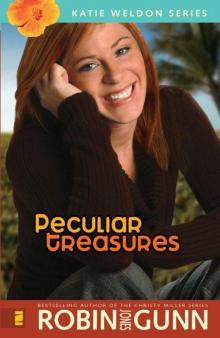 Peculiar Treasures
Peculiar Treasures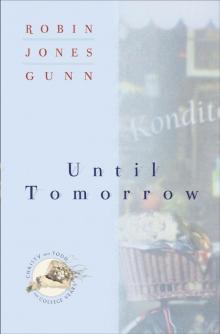 Until Tomorrow
Until Tomorrow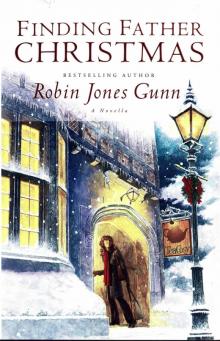 Finding Father Christmas
Finding Father Christmas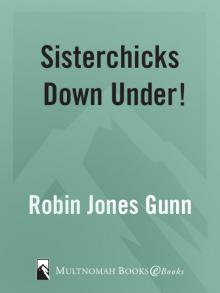 Sisterchicks Down Under
Sisterchicks Down Under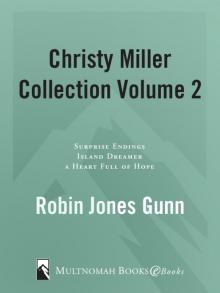 Christy Miller Collection, Vol 2
Christy Miller Collection, Vol 2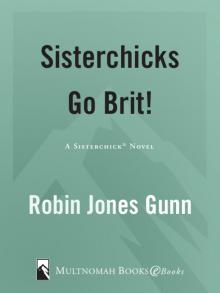 Sisterchicks Go Brit!
Sisterchicks Go Brit!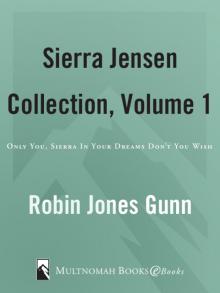 Sierra Jensen Collection, Vol 1
Sierra Jensen Collection, Vol 1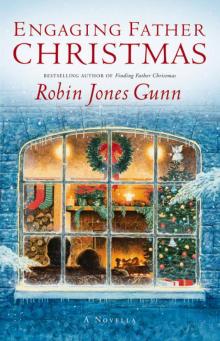 Engaging Father Christmas: A Novella
Engaging Father Christmas: A Novella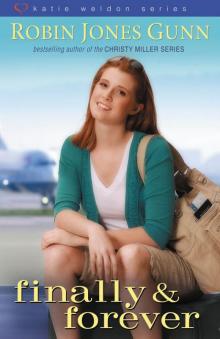 Finally and Forever
Finally and Forever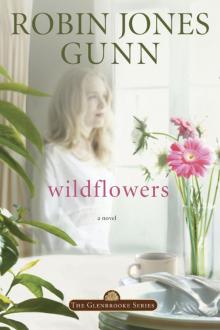 Wildflowers
Wildflowers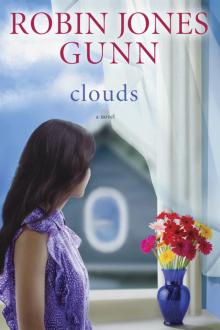 Clouds
Clouds Sierra Jensen Collection, Vol 3 Sierra Jensen Collection, Vol 3
Sierra Jensen Collection, Vol 3 Sierra Jensen Collection, Vol 3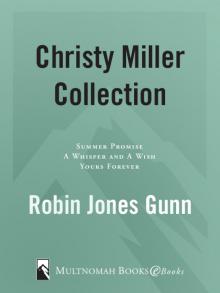 Christy Miller Collection, Vol 1
Christy Miller Collection, Vol 1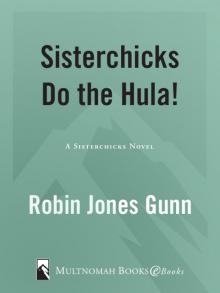 Sisterchicks Do the Hula
Sisterchicks Do the Hula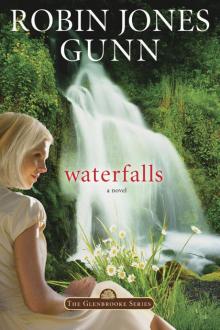 Waterfalls
Waterfalls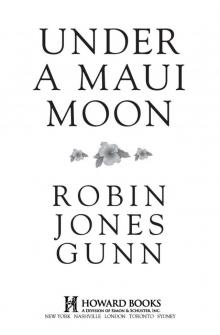 Under a Maui Moon
Under a Maui Moon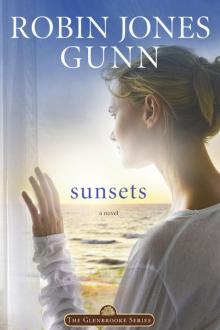 Sunsets
Sunsets Sisterchicks in Sombreros
Sisterchicks in Sombreros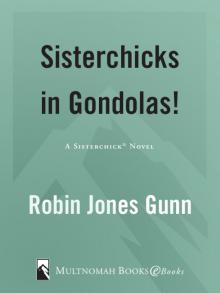 Sisterchicks in Gondolas!
Sisterchicks in Gondolas!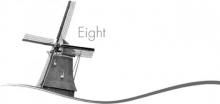 Sisterchicks in Wooden Shoes!
Sisterchicks in Wooden Shoes!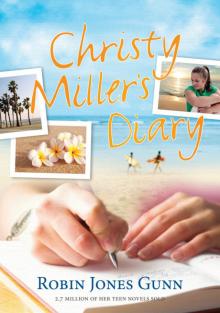 Christy Miller's Diary
Christy Miller's Diary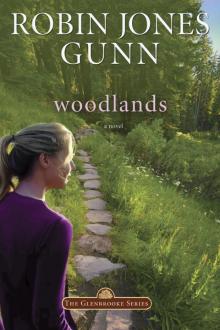 Woodlands
Woodlands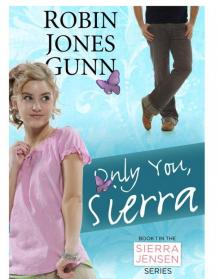 Only You, Sierra
Only You, Sierra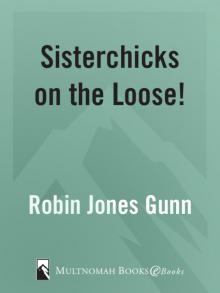 Sisterchicks on the Loose
Sisterchicks on the Loose Sierra Jensen Collection, Vol 2
Sierra Jensen Collection, Vol 2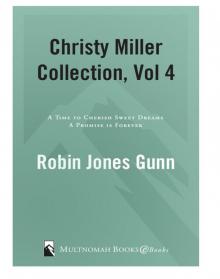 Christy Miller Collection, Vol 4
Christy Miller Collection, Vol 4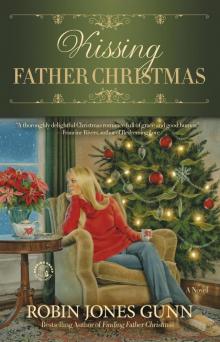 Kissing Father Christmas
Kissing Father Christmas Sierra Jensen Collection, Vol 4 Sierra Jensen Collection, Vol 4
Sierra Jensen Collection, Vol 4 Sierra Jensen Collection, Vol 4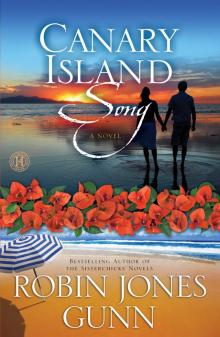 Canary Island Song
Canary Island Song Secrets
Secrets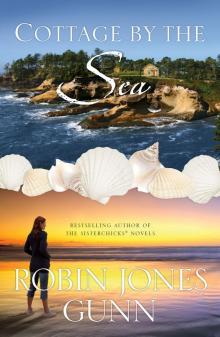 Cottage by the Sea
Cottage by the Sea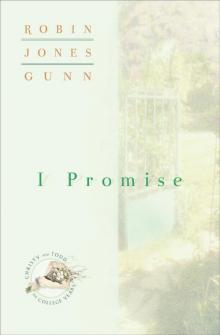 I Promise
I Promise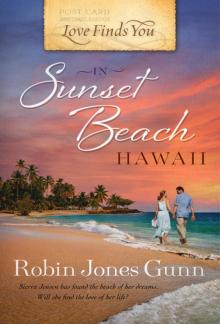 Love Finds You in Sunset Beach, Hawaii
Love Finds You in Sunset Beach, Hawaii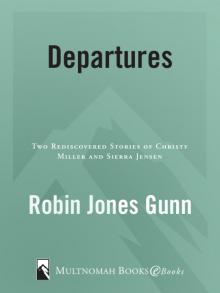 Departures: Two Rediscovered Stories of Christy Miller and Sierra Jensen
Departures: Two Rediscovered Stories of Christy Miller and Sierra Jensen Coming Attractions
Coming Attractions Sierra Jensen Collection, Volume 3
Sierra Jensen Collection, Volume 3 Sierra Jensen Collection, Volume 4
Sierra Jensen Collection, Volume 4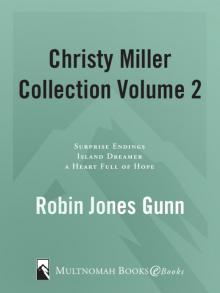 Christy Miller Collection, Volume 2
Christy Miller Collection, Volume 2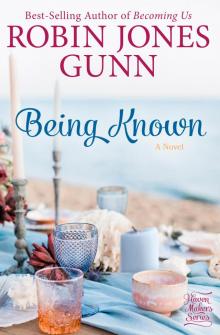 Being Known
Being Known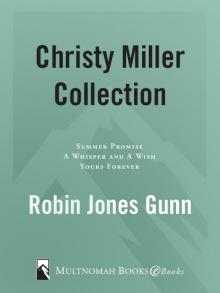 Christy Miller Collection, Volume 1
Christy Miller Collection, Volume 1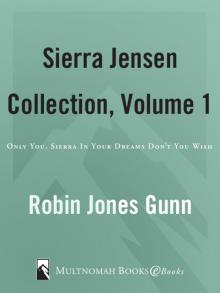 Sierra Jensen Collection, Volume 1
Sierra Jensen Collection, Volume 1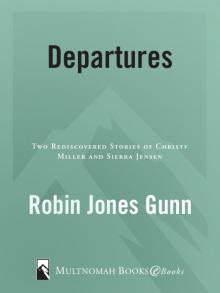 Departures
Departures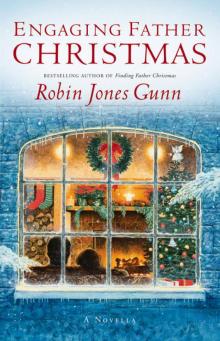 Engaging Father Christmas
Engaging Father Christmas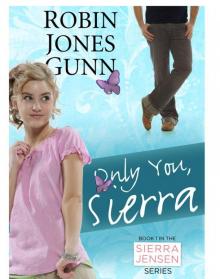 Only You, Sierra: Book 1 in the Sierra Jensen Series (eBook)
Only You, Sierra: Book 1 in the Sierra Jensen Series (eBook)